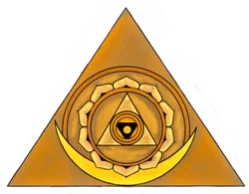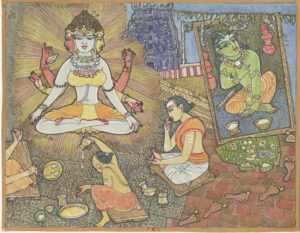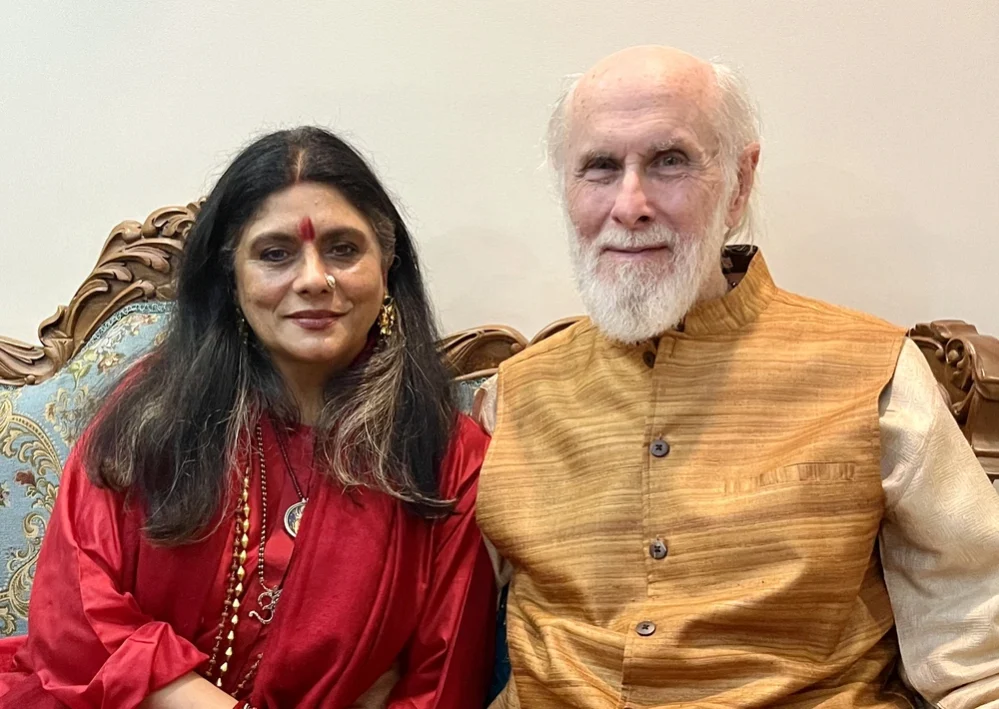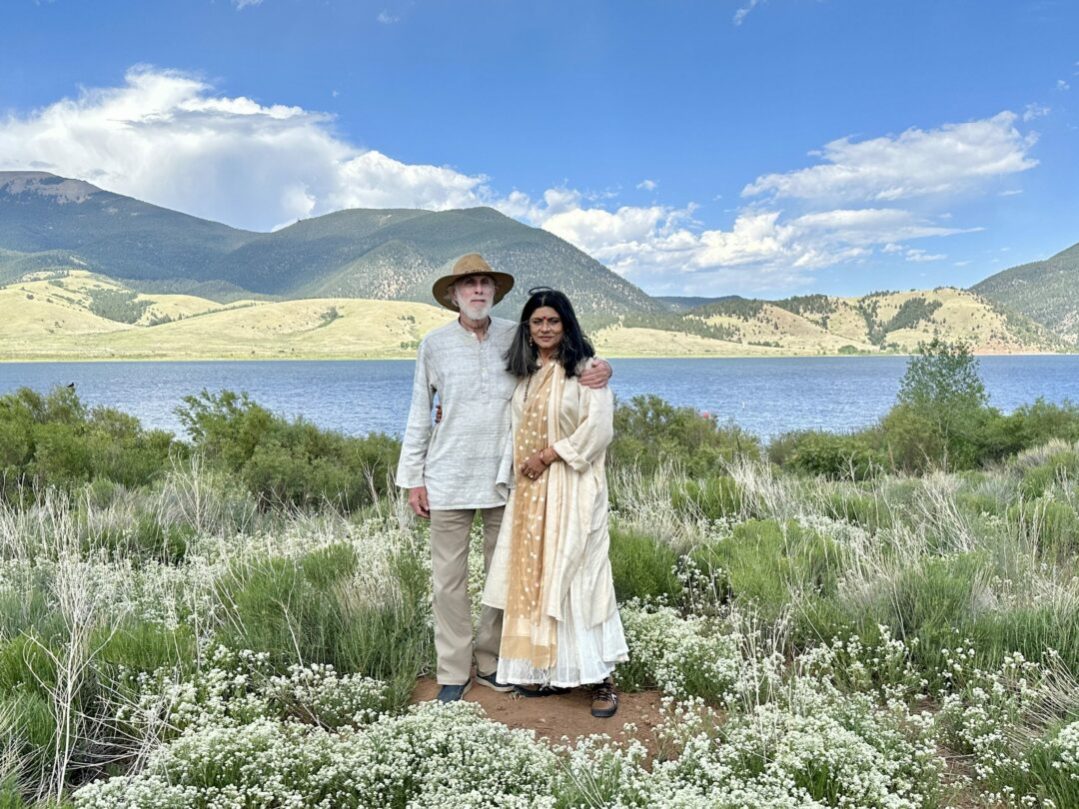Vedic Counseling includes Ayurvedic Counseling at a wellness level, but has a broader scope of concerns that includes Yoga, Vedanta, Jyotish and Vastu, and addresses all aspects of our lives.
There are two primary models of Ayurvedic practice available today in the Ayurvedic field.
The first is a clinical model aimed at the treatment of disease, much like other primary health care practices and the work of doctors of various types.
The second is a counseling model aimed at teaching the principles and practices of right living, wellness and longevity, a more educational approach often connected with psychological issues.
Clinical Ayurveda
The clinical model of Ayurveda includes powerful Ayurvedic herbs and clinical therapies like Pancha Karma. It aims to diagnose and treat serious diseases. The BAMS Ayurvedic doctor program in India, emphasizes clinical Ayurveda. Many western Ayurvedic programs aim at developing clinical Ayurveda.
Yet the clinical model is difficult to practice in the West as it works best with government licensing, which Ayurveda so far does not have in the West. The clinical acceptance of Ayurveda in the West is moving slowly and may take time for full recognition, though it is making important progress.
Ayurvedic Counseling
Ayurvedic counseling relates to behavior and lifestyle changes to improve our physical and mental wellbeing. These include daily and seasonal health regimens, constitution balancing, and adjustments for stages of life and the aging process. It promotes positive vitality and a peaceful psychology through natural living, Yoga and meditation. An appropriate Ayurvedic lifestyle is the foundation for both treating diseases and preventing them from occurring in the first place. It may include prescription of herbs, but of a mild nature, and massage therapies.
Such a life counseling model is not well developed in modern medicine, which aims at drugs and surgery. To work as an Ayurvedic counselor requires less training and expense than to be a clinician. It is not a full Ayurvedic practice but has great value and relevance to everyone, as behavior is the main causative factor in disease. It is most relevant at a psychological level.
Vedic Counseling and the Four Goals of Life
Some may think that Ayurvedic counseling and Vedic counseling are the same. The two are related but different. Vedic counseling has a larger field of concerns that includes not only Ayurveda, but other Vedic disciplines of Yoga, Vedanta, Vedic Astrology and Vastu. In other words, all Vedic disciplines are forms of counseling or life guidance.
An important way to look at the relationship between Vedic counseling and Ayurvedic counseling is relative to the Vedic goals of life. These are well known as fourfold as Dharma, Artha, Kama and Moksha.
Dharma is the pursuit of right action and higher values according to our unique individual nature, karma and capacities, yet also relative to our role in the universe as a whole.
Artha is the achievement of goals and objectives, including wealth and the proper means of livelihood and developing prosperity.
Kama is enjoyment, happiness, love and relationship, which is possible in a lasting manner only through the fulfillment of Dharma and Artha.
Moksha is the liberation of the consciousness from the bondage of karma and desire, the way of Self-realization. Moksha proceeds through the practice of Yoga and meditation according to Vedanta and its science of consciousness.
These four primary goals of life are based upon a fifth goal as their foundation, which is Arogya, or health and wellbeing of body and mind. Health, vitality and mental composure are the basis for pursuing the goals of life, which are otherwise difficult to accomplish in an enduring manner.
Ayurveda is specifically designed to deal with Arogya or health and wellbeing, specifically the treatment of disease that obstructs them. This is done in order to facilitate the four main goals of Dharma, Artha, Kama and Moksha, which Ayurveda addresses indirectly and are not the specific topics of Ayurvedic study or treatment.
Vedic counseling is designed to help us directly achieve Dharma, Artha, Kama and Moksha as its primary concerns, but recognizes the foundation of Arogya or health and wellbeing through Ayurveda, which it addresses as part of right living and behavioral practices.
Vedic counseling is based upon the examination of dharma and karma as primary factors. It is more of a spirituality, psychology and way of Vedic living.
Vedic Counseling: A Broad Model that can include Ayurvedic Counseling
An Ayurvedic counselor is not necessarily a Vedic counselor. A Vedic counselor may not be an Ayurvedic clinician, which is a more specialized discipline. Ayurvedic counseling can fit into the broader scheme of Vedic counseling, but can stand on its own. Vedic counseling can also stand on its own apart from Ayurveda, with specializations in other Vedic fields.
For an Ayurvedic counselor to be a full Vedic counselor, they would need to study other fields of Vedic knowledge as Yoga, Vedanta and Vedic astrology to address all the domains of life like career, prosperity, relationship, or yogic spirituality.
Vedic astrology or Jyotish can deal with all the four goals of Dharma, Artha, Kama and Moksha as well as health and wellness or Arogya, which are indicated in various aspects of the birth chart. Yoga as a spiritual and psychological discipline is essential for Moksha, with practices extending to mantra and meditation.
The broadness of the Vedic vision makes it possible to integrate these various Vedic disciplines. Such factors as the three gunas, the five elements, the five sheaths or koshas, the seven chakras, the nature of mind and consciousness, and an understanding of karma and dharma, are common to all the Vedic fields, though addressed from different angles. This allows an integration of Ayurveda into Vedic counseling, depending upon the interests and capacities of the counselor and how they may wish to develop their practice.
In other words, an Ayurvedic counselor can expand their range of concerns to include Vedic counseling. Meanwhile, a Vedic counselor should know the basics of Ayurveda. An Ayurvedic counselor can benefit by knowing the basics of Vedic counseling, as a Vedic counselor can benefit by knowing the basics of Ayurveda. An Ayurvedic counselor is a specialized form of Vedic counselor, while a Vedic counselor has a more general life guidance role and can specialize in Yoga, Vedanta, Jyotish or Vastu as well.
Note my book the Art and Science of Vedic Counseling and our Institute Integral Vedic Counseling on-line training program for more information. Note also the author’s other books integrating Vedic knowledge like Yoga and Ayurveda, Ayurveda and the Mind, Ayurvedic Astrology, Vedantic Meditation and Vedic Yoga.
The focus of our work is the broader model of Vedic counseling that includes a foundation in Ayurveda but extends to Yoga, Vedanta and Vedic astrology, with a background in the Vedic way of life, aiming at the psychological and spiritual dimensions of the human being, not just the physical body. We welcome you to join us in our study and research, and integration of all the Vedic Sciences.
Dr. David Frawley (Pandit Vamadeva Shastri)






